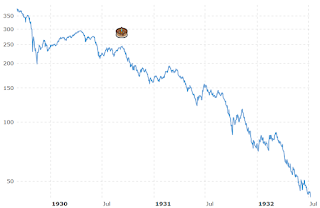トシユキ 2020年1月5日 15:56 のコメント
最近、私は長期投資の売りのルールについて考えています。バフェットさんに関した本には、よく買いのルールについては詳細に書いてあるのですが、売りには殆ど言及されていない気がします。
バフェットさん自身、素晴らしい銘柄を永久に保有するという話はよく聞くのですが、個人的には永久と言われても少しピンときていません。
そこで、質問なのですが、betseldomさん自身は、銘柄を売買する際には、どういった売りのルールを設けているのでしょうか?損切りなどは取り入れているのでしょう?
まずは、トシユキさんからのお問い合わせに対して返信が遅くなったことをお詫びいたします。もたもたしているうちに世間の事態が急変し、投稿する機会を逃してしまいました。ここにきて、この話題にふさわしくない状況が少なくとも一時的には後退したと思われるため、今のうちにお答えします。
さて、ご質問に対して端的にお答えした後に、長期的な投資を意識しながらも売却に踏み切ったときを省みることで、なんらかの教訓が得られればと思います。
<用語の定義>
話題に進む前に、本ブログで使っている「長期」などの株式投資期間を指す言葉の定義を記しておきます。
・短期: 0-1年
・中期: 1-3年
・長期: 3-10年
・超長期: 10-30年だが、便宜的に「長期」に含める。
ここでは、企業が立案する事業計画上の表現や債券における区分を参考にし、さらには「3」の累乗でほぼ表現できる数を当てはめています。3年間を指して長期投資と呼ぶには短いように感じられるのはその通りで、むしろ7-10年超を長期投資と呼ぶほうがしっくりきます。しかし機械的な定義のほうが客観的で説得力があるため、個人的には上記の基準をとっています。
<売りのルールについて>
売りのルールとして漠然としたものはありますが、厳密な基準はできていません。自分が想定している企業価値の平均値を100としたときに、その周辺で売却する銘柄もありますし、150以上になった時点で売却するものもあります。そもそも企業価値を想定する上で成長性はある程度盛り込んでいますが、購入価格の水準によって譲渡益課税額の割合が異なったり、個人的な理由が他にあるため、銘柄による売却基準が異なっています。
さらに、できるだけ売却したくない銘柄の株価が短期的に高すぎると感じた場合には、信用売りをしてヘッジすることがあります(ただし、気休めにしかなりませんでした)。
<損切りについて>
損切りは実行します。そもそも新規に買う銘柄数が少ない上に上昇相場が続いたので、近年は損切りする局面がそれほどありませんでした。しかし過去記事で取り上げた銘柄に、いくつか例があります。たとえば、クックパッド(2193)やツムラ(4540)です。
クックパッドの場合、事業の方向性が個人的には見通せなくなったことで、株価暴落後ながらも全売却し、投資額に対して大きな比率の損失におわりました。またツムラの場合は、敬愛する企業ではあるものの、事業環境を踏まえると買値に不満が残ったため、購入後それほど間を置かずに、いったん売却することにしました。
・2018年の投資をふりかえって(2)全売却銘柄:クックパッド(2193)
・2014年の投資をふりかえって(8)その他:日精ASB,任天堂,しまむら,ツムラ
今になって振り返ってみると、ウォーレン・バフェットが触れてきたような投資の基本方針からはずれていると個人的に強く感じた際に、損切りに踏み切っていたように思えます。
・投資家が見極めるべき5項目(ウォーレン・バフェット1993年)
超一級の企業ではなくても十分に割安だと思える銘柄は、多くの場合、含み損があっても損切りせずに継続保有します。一方、投資利益はあがりながらも見誤ったと感じられる銘柄は、適宜売却しています。
(つづく)















